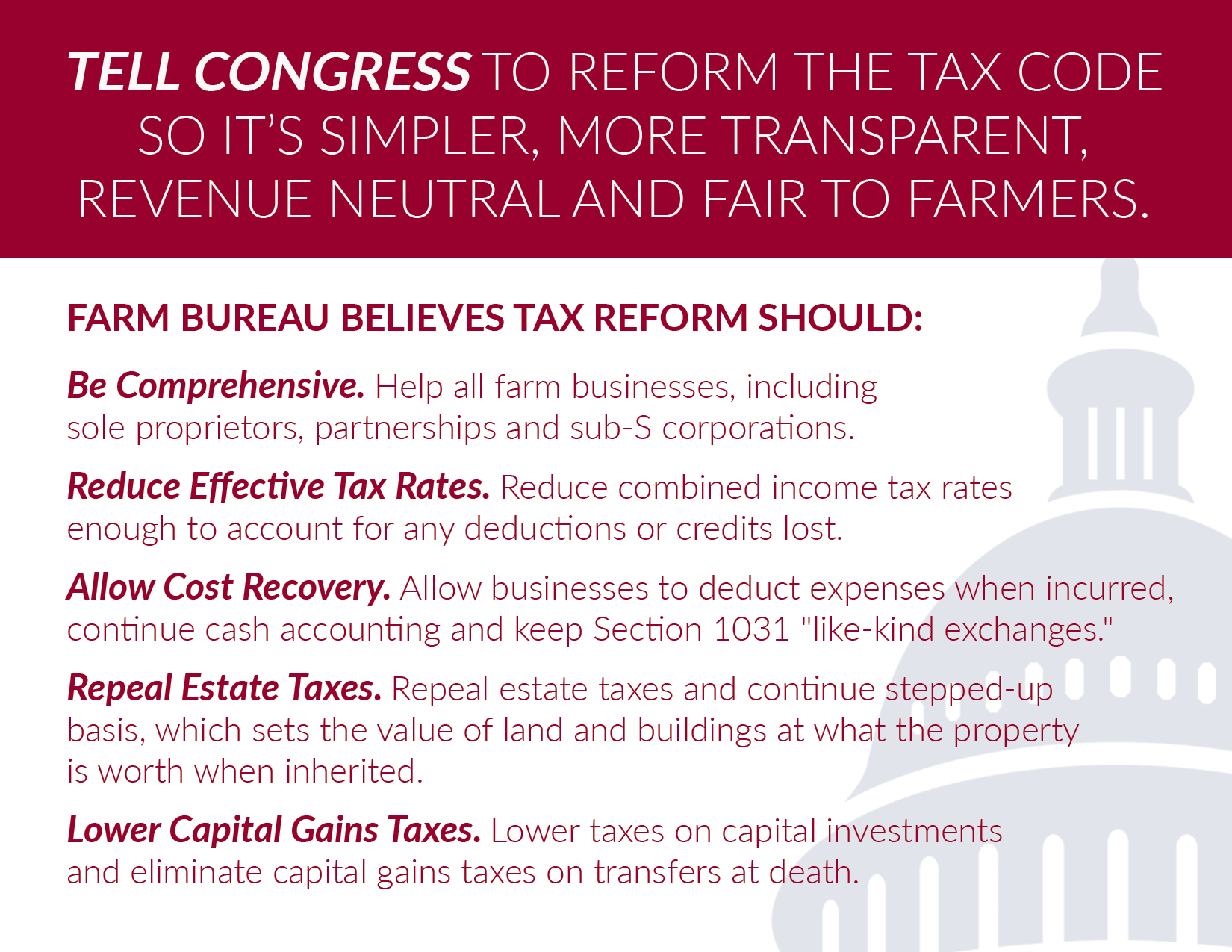April is here, and with it comes warmer weather, spring break vacations, . . . and taxes. Yes, we hate to bring it up but Tax Day is just around the corner — April 17th to be exact — so we thought we’d look a little closer at some of the finer points of the tax reform law that Congress passed a few months ago. We’ve fired a handful of questions to Pat Wolff, Senior Director of Congressional Relations for American Farm Bureau Federation, and she’s given us the inside scoop on what’s new with taxes and what’s on the horizon.
Question #1: The Tax Cuts and Jobs Act is a comprehensive law, making changes to the nation’s tax policies that impact practically every individual and business in the US. Which provisions do you think are most important for North Carolina farmers and how does this reform package help them going forward?
The cornerstone of tax reform is lower tax rates for individuals and businesses. For farmers that means being about to keep more of their money to reinvest in their operations. Farms that pass profits through to their owners for taxation (sole-proprietorships, partnerships and under Subchapter S) will be taxed from zero to 37 percent with that top rate kicking in at $600,000 of income. That’s compared to the old law where the top rate of 39 percent used to start when income exceeded $470,000. The top corporate tax rate permanently shrinks from 35 percent to 21 percent.
Expanded deductions will allow farmers to write off more of their expenses immediately. This will make it easier to reduce taxable income by matching income with offsetting expenses. Section 179 small business expensing is permanently doubled to $1 million. There are no limits on bonus depreciation. And almost all farm businesses get to keep using cash accounting and deduct their interest expenses and property taxes.
Question #2: The reduction in the corporate tax rate has gotten a lot of attention, but the majority of North Carolina farms are family-owned sole proprietorships and partnerships. Are there any provisions in the new tax law that will help family-owned sole proprietorships and partnerships?
Tax reform provides a new business deduction that is available only to sole-proprietorships, partnerships and those that pay taxes under Subchapter S. Individuals operating pass-through businesses will be able to take a tax deduction equal to 20 percent of net farm income with limitations if taxable income exceeds $315,000 for a couple.



